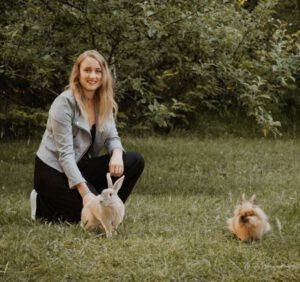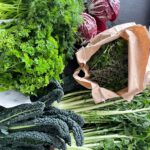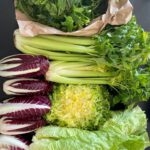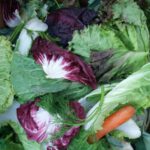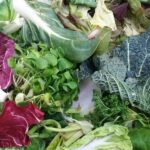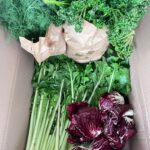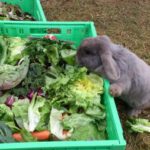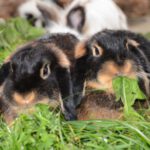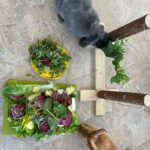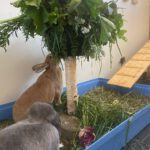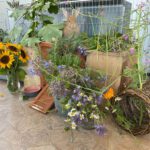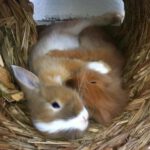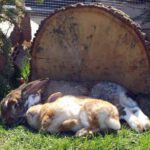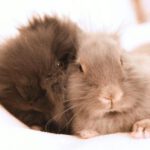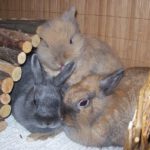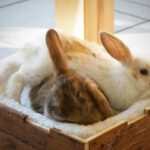The nutrition of rabbits is actually not that complicated but might be prone to errors that quite fast lead to negative effects for the rabbit.
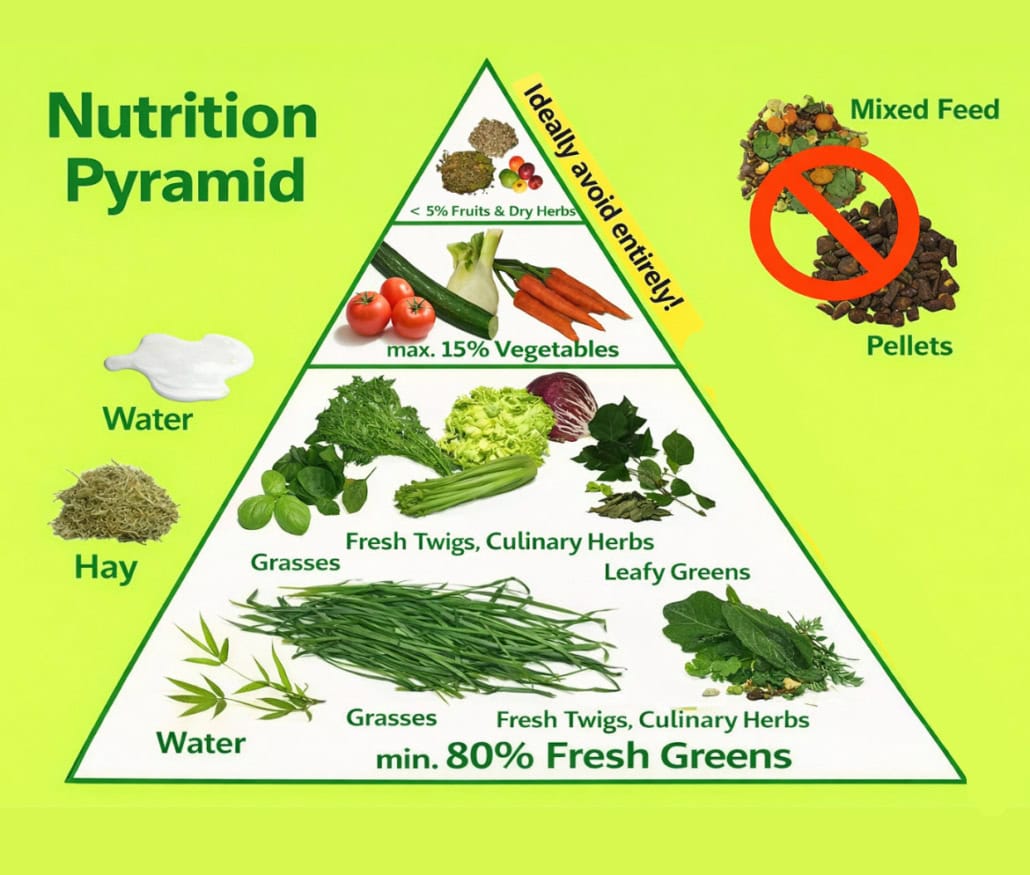
Rabbits are folivore (browsers), their wild relatives are mostly feeding on green vegetation, buds and leaf tips. Additionally, they might pick up some roots and bark. Due to the short time of domestication, our pet rabbits still need this type of nutrition.
Main Nutrition
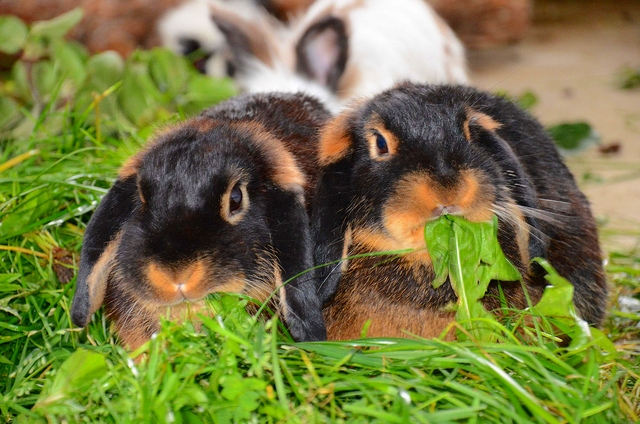
Rabbits need fresh food: The main part of their nutrition should always consist of fresh, diverse food. During spring, summer and autumn, it may be advisable to collect this food directly in nature as plants from meadows. Branches and leaves are not only for free but also the healthiest food for rabbits. Of course, rabbits that live outside can also graze this food themselves; these rabbits only need collected food for the night. Sometimes, you can also find wild plants during winter.
If you do not have the possibility or it is not possible to find sufficient food, it is advisable to buy leafy vegetables (bitter salads, cabbage, spinach …), green vegetables (carrot greens, the leaves of turnip cabbage, stalk celery) and kitchen herbs as a main part of food. Food must be available to the rabbits all the time as rabbits are continuously feeding in small quantities to evenly keep their digestive parts busy. If there is not enough food there until you feed your rabbit for the next time, digestive problems may occur.
Fibres
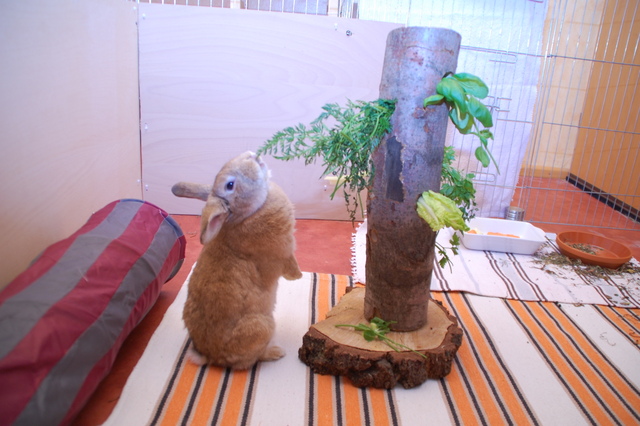
It is important to offer hay of high quality all the time, in addition to food. A mixture of diverse dried herbs also balances the small level of secondary plant compounds in leafy vegetables. Hence, dried herbs are not needed if the rabbits are fed with high quantities of wild herbs on a daily basis. However, dried herbs should be fed only in small amounts, not more than a handful for two rabbits per day. The same applies to branches which are also very important if leafy vegetables are fed as a main component.
Supplementary Food
In addition to the main nutrition, root and tuber vegetables may be offered. From time to time, (local) fruits may also be fed, especially in autumn.
Water
The best is to offer fresh water in a stable ceramic bowl. To prevent dirt, it is best to put this bowl on an elevated position without litter. Nipple drinkers are unsuitable as the only water source.
Change of Food
The feeding should only be changed very slowly. New kinds of food need to be tested for tolerance in small amounts. If you want to change the feeding, give more and more of the new food and less and less of the old food, every day.
Tipp: Feeding schedule for rabbits
Bought feed mixtures are unhealthy
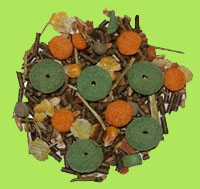
Most feed mixtures that can be bought make the rabbits sick after some time. It is composed of industrial garbage of minor quality which are grounded, coloured and flavoured. The artificial flavours influence the sense of taste of the rabbits so that they eat this minor quality. Dry food is unnatural and damages the entire organism of the rabbits! The consequences are diverse diseases (such as diarrhea and flatulence) and, thus, high bills for the vet.
Why are bought feed mixtures harmful?
“Commercial dry food mixtures are aimed at the increased needs of breeding and fattening animals which are not getting old. As single nutrition, they lack of crude fibers and have too much energy and calcium for pet rabbits which should reach an age of up to ten years. In case of permanent feeding, they cause:
Reduced tooth abrasion
Adiposis
Dysbiosis
Urolithiasis/Calcinosis
Diarrhea
To prevent permanent damage to pet rabbits the feeding should be changed to physiological fresh food as soon as possible after purchase.”
(Translated into English from Dr. med. Vet. Hein – one of the leading rabbit specialists in Germany. Additional title pet animals / small mammals, diploma ECZM).
Healthy concentrated food
You can offer food which you have mixed yourself as a healthy concentrated food or treat. You can find a comparison of dried food with valuation here. If you like to buy bagged food, you can find a valuation, here.


